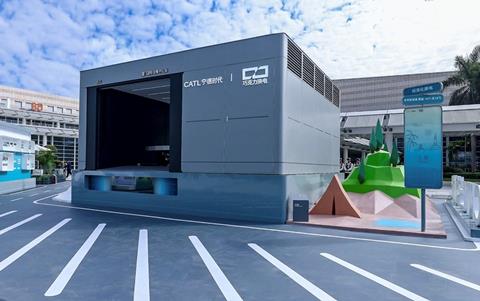
Chinese EV battery firm CATL has big plans to make EV battery swapping a standard practice.
The company says it will build 1,000 self-operated Choco-Swap battery swapping stations next year and expand into Hong Kong and Macao.
At its recent conference this week, it also unveiled two standardised battery models – #20 and #25.
Each model comes in a lithium iron phosphate (LFP) and NMC version, with different energy densities to meet user needs.
According to Yang Jun, CEO of CATL’s battery swapping arm CAES, the #20 LFP version battery pack offers 42 kWh capacities and a range of 400km; the NMC version offers 52kWh capacities and a range of 500 km; while the #25 LFP version battery pack offers 56 kWh capacities and a range of 500 km; and the NMC version offers 70 kWh capacities and a range of 600 km.
Yang Jun said users will shift from the traditional mode of purchasing the entire battery packs to paying according to usage, and each battery will maximise its value.
CATL has so far signed contracts for over 100,000 units of batteries with 31 companies and launched 10 battery-swap-compatible vehicles with partners including Changan Auto, GAC Group , BAIC Group, SAIC-GM-Wuling and FAW Group. The models will start to be rolled out next year.
The company, together with its partners, wants to establish a network of 10,000 stations, ultimately growing the battery swap network to 30,000 stations.
Jun says: “We are addressing the challenges faced by the EV industry as the industry goes into uncharted waters. The simpler the solutions we provide, the better our automotive partners can leverage their strengths in intelligence and personalisation to create value for users.”
CATL chairman Robin Zeng predicts that by 2030, battery swapping, home charging and public charging will each account for a third of the Chinese market.
The company says it takes just 100 seconds to swap a battery and that it will become as easy as refuelling but at a ‘significantly reduced cost’.
However, while battery swapping offers convenience to users by separating vehicle and battery, it requires greater collaboration across the industry.
































